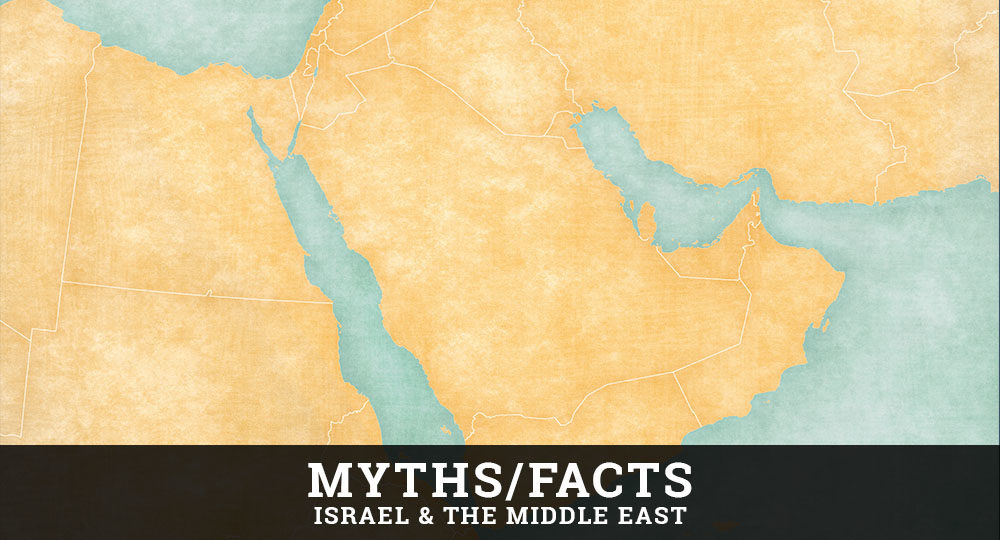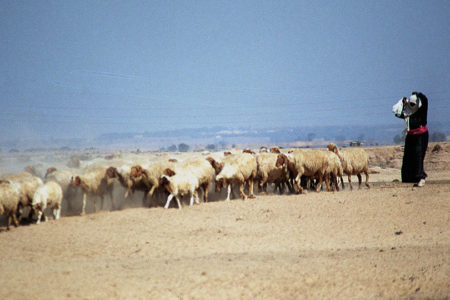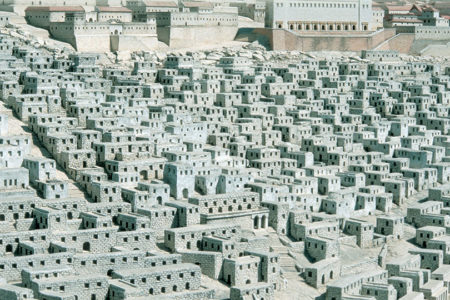Myths/Facts: Israel & the Middle East Jul/Aug 2004
MYTH: Israel has no right to be in the West Bank. Israeli settlements are illegal and an obstacle to peace.
FACT: Jews have lived in Judea and Samaria—the West Bank—since ancient times. The only time Jews have been prohibited from living in the territories in recent decades was during Jordan’s rule from 1948 to 1967. This prohibition was contrary to the Mandate for Palestine adopted by the League of Nations, which provided for the establishment of a Jewish state, and specifically encouraged “close settlement by Jews on the land.”
Numerous legal authorities dispute the charge that settlements are “illegal.” International law scholar Stephen Schwebel notes that a country acting in self-defense may seize and occupy territory when necessary to protect itself. Schwebel also observes that a state may require, as a condition for its withdrawal, security measures designed to ensure its citizens are not menaced again from that territory.1
According to Eugene Rostow, a former U.S. undersecretary of state for political affairs in the Lyndon Johnson administration, Resolution 242 gives Israel a legal right to be in the West Bank. The resolution, Rostow noted, “allows Israel to administer the territories” it won in 1967 “until ‘a just and lasting peace in the Middle East’ is achieved.” 2
Nor have the settlements ever been an obstacle to peace.
n From 1949 to 1967, when Jews were forbidden to live on the West Bank, the Arabs refused to make peace with Israel.
n From 1967 to 1977, the Labor Party established only a few strategic settlements in the territories, yet the Arabs were unwilling to negotiate peace with Israel.
n In 1977, months after a Likud government committed to greater settlement activity took power, Egyptian President Anwar Sadat went to Jerusalem and later signed a peace treaty with Israel. Incidentally, Israeli settlements existed in the Sinai, and those were removed as part of the agreement with Egypt.
n One year later, Israel froze settlement building for three months, hoping the gesture would entice other Arabs to join the Camp David peace process. But none would.
n In 1994, Jordan signed a peace agreement with Israel, and settlements were not an issue. If anything, the number of Jews living in the territories was growing.
n Between June 1992 and June 1996, under Laborled governments, the Jewish population in the territories grew by approximately 50 percent. This rapid growth did not prevent the Palestinians from signing the Oslo Accords in September 1993 or the Oslo 2 agreement in September 1995.
n In 2000, Israeli Prime Minister Ehud Barak offered to dismantle dozens of settlements, but the Palestinians still would not agree to end the conflict.
Settlement activity may be a stimulus to peace because it forced the Palestinians and other Arabs to reconsider the view that time is on their side. References are frequently made in Arabic writings to how long it took to expel the Crusaders and how it might take a similar length of time to do the same to the Zionists.
The growth in the Jewish population in the territories forced the Arabs to question this tenet. “The Palestinians now realize,” said Bethlehem Mayor Elias Freij, “that time is now on the side of Israel, which can build settlements and create facts, and that the only way out of this dilemma is face-to-face negotiations.”3 Many Israelis nevertheless have concerns about the expansion of settlements. Some consider them provocative, others worry that the settlers are particularly vulnerable and have been targets of repeated Palestinian terrorist attacks. To defend them, large numbers of soldiers are deployed who would otherwise be training and preparing for a possible future conflict with an Arab army.
Some Israelis also object to the amount of money that goes to communities beyond the Green Line and special subsidies that have been provided to make housing there more affordable. Still others feel the settlers are providing a first line of defense and developing land that rightfully belongs to Israel.
The disposition of settlements is a matter for the final status negotiations. The question of where the final border will be between Israel and a Palestinian entity will likely be influenced by the distribution of these Jewish towns. Israel wants to incorporate as many settlers as possible within its borders while the Palestinians want to expel all Jews from the territory they control.
If Israel withdraws toward the 1967 border unilaterally or as part of a political settlement, many settlers will face one or more options: remain in the territories, be expelled from their homes, or voluntarily resettle in Israel.
The impediment to peace is not the existence of those settlements; it is the Palestinians’ unwillingness to accept a state next to Israel instead of one replacing Israel.
From Myths & Facts Online—A Guide to the Arab-Israeli Conflict by Mitchell G. Bard [www.JewishVirtualLibrary.org].
Used by permission.
ENDNOTES
- American Journal of International Law (April, 1970): 345-46.
- The New Republic (October 21, 1991): 14.
- The Washington Post (November 1, 1991).






